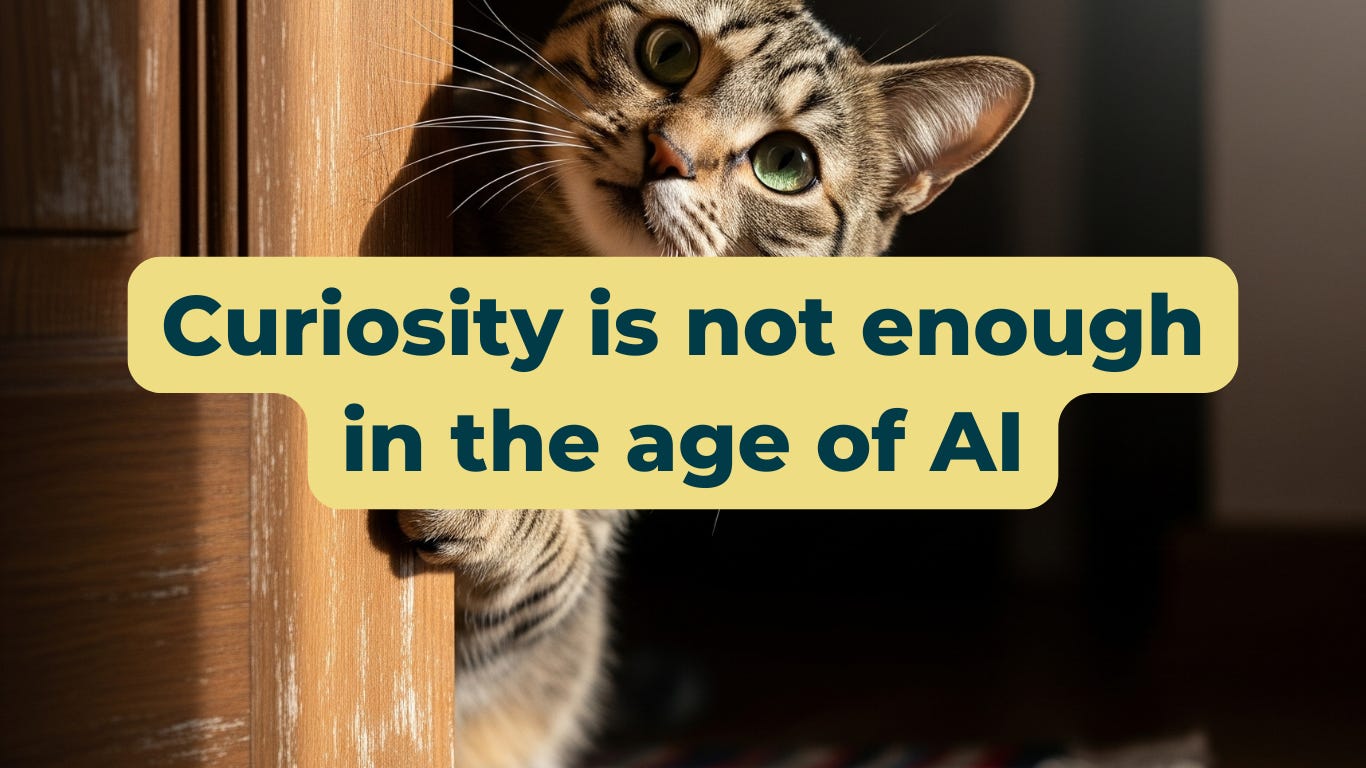Curiosity is not enough in the age of AI
The three horsemen of AI adoption
Welcome to FullStack HR, and an extra welcome to the 23 people who have signed up since last edition.
If you haven’t yet subscribed, join the 9700+ smart, curious, and like-minded future of work people by subscribing here:
Happy Tuesday,
The last two weeks have been busy, so I've been focusing on delivering the weekly update rather than thought-pieces or whatever I’m calling these.
It feels like the whole world is doing kick-offs these weeks, hence I’ve been talking to a lot of people. The general feeling is that people are still very curious to move from the initial “ChatGPT is cool” to “How can our organization really use AI?”.
(Hint: it’s strategy work combined with education and workshops on the low-hanging fruit that makes the difference.)
If you'd like me to help facilitate these, please let me know! I mainly done workshops with lead teams, finance teams, and, of course, HR teams, and I’ve done them across the globe.
But enough of this! Let’s get to today’s piece!
I’ve been thinking a lot about what makes a good leader in this moment of AI.
I keep hearing people say that curiosity is the main thing. I listened to a Swedish leadership “guru” the other day, and he said exactly that. And I’ve said the same myself, many times since 2023. Curiosity matters. It always has.
I was also listening to another podcast, Lenny’s Podcast, where the CEO of Airtable, Howie Liu, talked about building an AI-native organization. (Worth a listen!)
I probably should have figured this out sooner, but curiosity alone is not enough.
What struck me is that the leaders and companies that move forward don’t just explore; they aren’t just curious. They combine curiosity with two other elements:
They understand their business. Know what really drives it forward, whether it’s sales, customers, or operations. (This seems obvious for CEOs, which is true in most cases, but you’d be surprised how many other CxOs have a vague idea of this…)
They do. They don’t stop at reading about AI or attending talks; they also engage in hands-on learning. They build, test, and create. They get their hands dirty.
And imho, you can’t skip any of these (or combine only two).
If you’re only curious, you’ll end up watching from the sidelines.
If you only build, you’ll build the wrong things.
If you only know your business, you’ll lead based on outdated premises.
The strongest leaders I know, CEOs, CMOs, CHROs, CFOs, combine all three.
They stay curious, they ground that curiosity in a deep understanding of their business, and then they build things that actually solve problems.
That’s also why I think many executives are at risk right now and take a defensive approach to AI. Too many of them still lead on old assumptions, “this is how campaigns used to work” or “this is how operations used to be set up.” But the landscape has shifted. AI has changed what’s possible. If you haven’t been building in this new environment, even in small ways, then you don’t really understand what’s happening.
And if you don’t understand, you’re leading blind.
The leaders who do get it, the ones I’ve worked with or observed closely, are not just strategists in the ivory tower. They’re doers. They spend time with their teams. They test things. They experiment. They understand both the limits and the possibilities of the tools because they’ve tried them.
And maybe this is the bigger point, leadership itself is shifting. In the AI era, a leader can’t just set direction from above. They need curiosity, business insight, and the humility to build alongside others.
Without all three, they risk falling behind.



I often say critical thinking comes first.